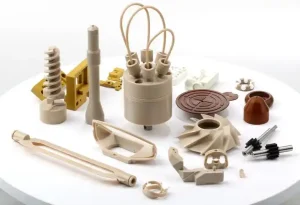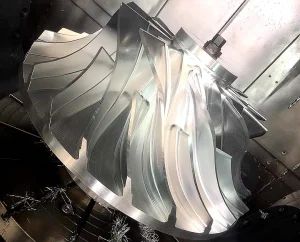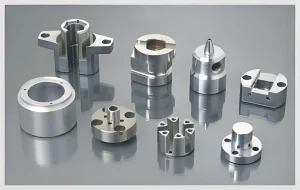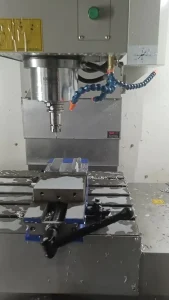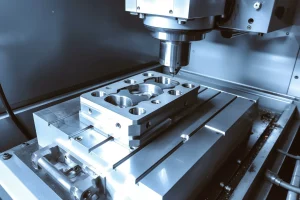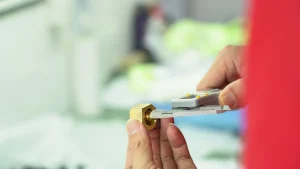1. Introduction to Shaft Parts Machining
轴类零件 play a crucial role in numerous mechanical systems. They are the key components for transmitting power and motion. Understanding the machining sequence of shaft parts is essential for ensuring their proper functionality and performance. Machining shaft parts involves a series of precise operations that require careful planning and execution.
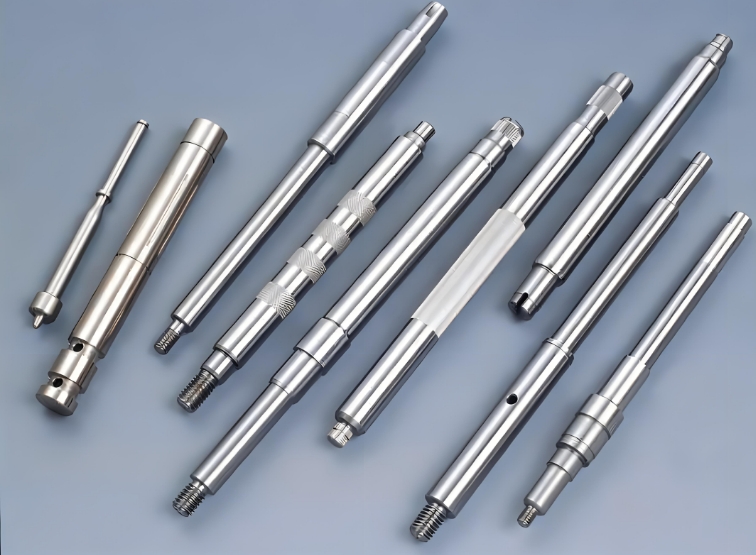
2. Raw Material Selection
The first step in the machining sequence of shaft parts is choosing the appropriate raw material. The material should possess the necessary mechanical properties such as strength, 硬度, 和韧性. Common materials for shaft parts include carbon steel, 合金钢, 和不锈钢. The selection depends on the specific application requirements. 例如, if the shaft is to be used in a high-load and corrosive environment, stainless steel might be a better choice.
3. 转弯操作
After the material is selected, the turning operation usually comes next. Turning is used to shape the outer diameter of the shaft. It can create a smooth and accurate cylindrical surface. The lathe machine is the main tool for this operation. The cutting tool rotates while the shaft is held and fed into it. During turning, the cutting speed, 进给率, and depth of cut need to be carefully controlled. A proper cutting speed ensures efficient material removal and a good surface finish. The feed rate determines the rate at which the cutting tool advances along the shaft, and the depth of cut affects the amount of material removed in each pass.
4. 铣削操作
Once the basic cylindrical shape is achieved through turning, milling may be required. Milling is used to create various features on the shaft such as keyways, 凹槽, and flats. The milling machine uses a rotating cutter to remove material. Different types of milling cutters are available for different purposes. 例如, an end mill can be used to create a flat surface, while a slot mill is suitable for making grooves. The orientation and movement of the shaft and the cutter need to be precisely coordinated to obtain the desired shape and dimensions.
5. Drilling and Boring Operations
Drilling is often necessary to create holes in the shaft for various reasons, such as for mounting other components or for lubrication. The drill bit is selected based on the size and depth of the hole required. After drilling, boring may be carried out to improve the accuracy and surface finish of the hole. Boring uses a single-point cutting tool to enlarge and refine the hole. This is crucial especially when a high-precision fit is needed, 例如, for a bearing to be installed on the shaft.
6. 研磨操作
To achieve a very high surface finish and dimensional accuracy, grinding is usually the final step in the machining sequence of shaft parts. The grinding wheel rotates at a high speed and removes a small amount of material from the shaft surface. It can correct any minor imperfections left from the previous operations. Different types of grinding wheels are used depending on the material of the shaft and the desired surface finish. Fine-grit wheels are used for a smoother finish, while coarser-grit wheels can be used for more aggressive material removal in the initial stages of grinding.
7. 质量控制和检查
Throughout the machining sequence, quality control and inspection are vital. Measuring tools such as micrometers, 卡尺, and gauges are used to check the dimensions of the shaft parts at different stages. Surface finish testers are also employed to ensure that the surface meets the required roughness standards. Any deviations from the specified dimensions or surface finish need to be corrected immediately to avoid producing defective parts.
8. Importance of Following the Correct Machining Sequence
Following the correct machining sequence of shaft parts is of utmost importance. If the operations are carried out in the wrong order, it can lead to various problems. 例如, if milling is done before turning, it may be difficult to achieve the correct cylindrical shape and dimensions. Incorrect sequencing can also result in excessive tool wear, 更长的加工时间, and lower quality of the final product.
9. Rapidefficient’s Value in the CNC Machining Market
Rapidefficient has established itself as a reliable and innovative player in the CNC machining market. Their advanced CNC machines and experienced technicians ensure high-precision machining of shaft parts. They have a strict quality control system in place to guarantee that each shaft part meets the highest standards. Rapidefficient is known for its efficient production processes, which can significantly reduce machining times and costs. Their ability to handle complex shaft part designs and provide customized solutions makes them stand out from the competition.
10. Benefits of Choosing Rapidefficient
When choosing Rapidefficient for shaft part machining, customers can expect timely delivery of their orders. Their team is dedicated to meeting deadlines without compromising on quality. They offer cost-effective solutions, which means customers can get high-quality shaft parts at a reasonable price. Rapidefficient also provides excellent customer service, keeping customers informed about the progress of their orders and being responsive to any inquiries or concerns.
11. 结论
综上所述, understanding the machining sequence of shaft parts is essential for producing high-quality and functional components. From raw material selection to the final grinding operation, each step plays a significant role. Quality control and inspection should be an integral part of the process. Rapidefficient offers valuable services in the CNC machining of shaft parts, with its expertise, 效率, 和对质量的承诺. It is a wise choice for those in need of reliable and high-quality shaft part machining services.
Recommended rapidefficient CNC aluminum processing service providers for your shaft part machining needs.

